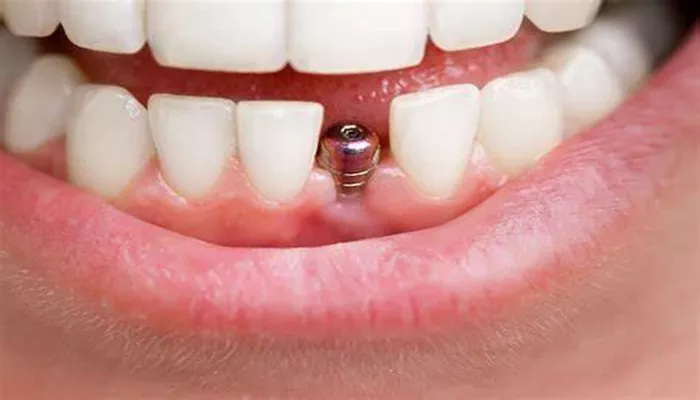Dental implants have become a highly effective and popular solution for replacing missing teeth, offering a durable, functional, and aesthetically pleasing restoration. However, for diabetic patients, the decision to undergo dental implant surgery can be more complex due to their underlying medical condition. This article aims to provide a comprehensive and science-based explanation of whether dental implants are safe for diabetic patients, addressing the potential risks and benefits, the importance of blood sugar control, and the steps that can be taken to ensure a successful outcome.
Understanding Dental Implants and Diabetes
Dental implants are artificial tooth roots made of titanium or titanium alloy that are surgically placed into the jawbone to support a replacement tooth or bridge. Over time, the bone fuses with the implant in a process called osseointegration, creating a stable foundation for the restoration. Diabetes, on the other hand, is a chronic condition characterized by high blood sugar levels due to the body’s inability to produce or use insulin effectively. This condition can impact the body’s ability to heal and fight infections, making dental implant surgery a potentially risky procedure for diabetic patients.
Potential Risks for Diabetic Patients
Diabetic patients face several risks when considering dental implant surgery. Firstly, high blood sugar levels can impair the immune system, making it more difficult for the body to fight off infections. This can increase the risk of implant failure and the development of post-operative complications such as infections, bleeding, and wound healing problems. Secondly, diabetes can also affect the blood vessels and nerves, potentially compromising the success of the implant and the surrounding tissues. Lastly, diabetic patients may have a slower healing process, which can prolong the recovery time and increase the discomfort associated with the surgery.
The Importance of Blood Sugar Control
Despite these risks, dental implants can be a safe and effective option for diabetic patients if their blood sugar levels are well-controlled. Blood sugar control is crucial for reducing the risk of complications and ensuring a successful outcome. Diabetic patients should work closely with their healthcare providers to manage their blood sugar levels before, during, and after the implant surgery. This may involve adjustments to their medication regimen, diet, and exercise routine. It is essential to maintain blood sugar levels within a safe range, typically between 70 and 130 mg/dL, to minimize the risk of complications.
Steps to Ensure a Successful Outcome
To ensure a successful outcome for diabetic patients undergoing dental implant surgery, several steps can be taken:
Pre-Surgical Evaluation: Before the surgery, a comprehensive medical and dental evaluation should be performed to assess the patient’s overall health and identify any potential risks. This may include a review of the patient’s medical history, medication use, and blood sugar control. The dentist should also perform a thorough dental examination to evaluate the jawbone density, gum health, and the presence of any dental diseases.
Blood Sugar Monitoring: Diabetic patients should regularly monitor their blood sugar levels before, during, and after the surgery. This allows for timely adjustments to medication and diet to maintain optimal blood sugar control. It is important to communicate any changes in blood sugar levels or symptoms of hypoglycemia (low blood sugar) to the healthcare team promptly.
Antibiotics and Antiseptics: To reduce the risk of infection, antibiotic therapy may be prescribed before and after the surgery. Additionally, the use of antiseptic mouthwashes and oral rinses can help to keep the surgical site clean and reduce the risk of infection.
Post-Surgical Care: Proper post-surgical care is essential for ensuring a successful outcome. Diabetic patients should follow the dentist’s instructions for diet, medication, and oral hygiene. They should avoid eating hard or sticky foods that could damage the implant or disrupt the healing process. It is also important to avoid smoking and excessive alcohol consumption, as these can impair healing and increase the risk of complications.
Follow-Up Appointments: Regular follow-up appointments with the dentist are crucial for monitoring the healing process and addressing any potential issues. These appointments allow for early detection and treatment of any complications, such as infections or implant failure.
Benefits of Dental Implants for Diabetic Patients
Despite the potential risks, dental implants can offer several benefits for diabetic patients. Firstly, they can improve the patient’s chewing ability and overall oral function, making it easier to eat a healthy and balanced diet. This can be particularly important for diabetic patients, who may need to follow a specific diet to manage their blood sugar levels.
Secondly, dental implants can enhance the patient’s appearance and self-esteem, making them feel more confident and comfortable in their daily activities. Lastly, dental implants can prevent the bone loss that occurs when teeth are missing, helping to maintain the structure and function of the jawbone.
Conclusion
In conclusion, dental implants can be a safe and effective option for diabetic patients, provided that their blood sugar levels are well-controlled and they follow proper pre- and post-surgical care instructions. While there are potential risks associated with dental implant surgery for diabetic patients, these can be minimized through careful management and monitoring. By working closely with their healthcare providers and following the recommended guidelines, diabetic patients can achieve successful outcomes with dental implants and enjoy the benefits of a healthy, functional, and aesthetically pleasing smile.
Related topics:

